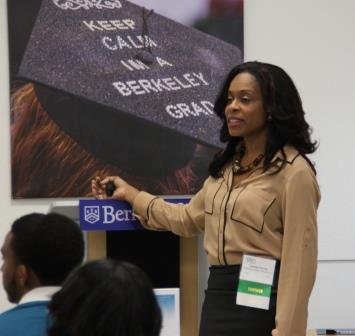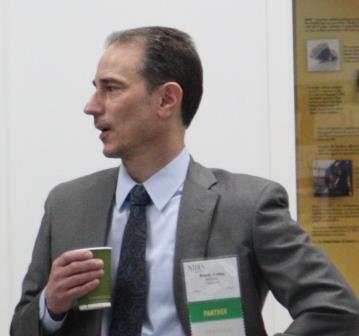“Mentoring is about relationships that improve upon a particular performance to fill that behavior gap from where I am today and taking you to where you want to be tomorrow,” says Zuleika Cuevas, human resources manager at Berkeley College in Bergen County.
She would know. Berkeley has a formal mentoring program where senior members spend six months mentoring associates, and Cuevas is the one who oversees it.
Yesterday, she came before the NJBIA Women Business Leaders Network, as well as a handful of Berkeley students, to discuss what mentors and mentees should strive for in such a relationship. And to make sure we saw mentoring from the point of view of one who has done it, Cuevas asked one of the Berkeley mentors, Randy Luing, president of BES Inc., to join her.

Here are a few takeaways from the session.
Let the mentee lead the conversation.
As a mentor, you’re assisting them, so let them take ownership of the relationship.
It’s not like consulting, where the consultant just gives the answers. Mentoring is more like coaching, where the mentor acts as a facilitator to help them get to where they want to be. That means mentors should learn what they can about the mentee.
“We shadow the mentee, as well as the mentee shadowing us,” Luing said. “When I shadow my mentees, I really learn a lot and it gives you a new respect for your mentee. You may find your mentee is really good at what he does or what she does.”
You can’t force trust.
Mentors should strive to build a relationship that allows the mentee to open up. Luing says he usually schedules a meeting over lunch early on to get out of the work environment for a little while.
“That’s more about getting to know the person—their family, their upbringing or what jobs they had before,” Luing said.

Don’t mentor someone who is brand new.
Give a new hire time to learn something about the culture and who they may want to network with, Cuevas says. She recommends anywhere from a few months to a full year. That way, they will know what questions to ask and whom to go to.
It will also help make for better pairings because you have some idea about who they are, and who may be a good fit for them as a mentor.
“A lot of the magic happens with the matching, the pairing up of the mentor and mentee,” Cuevas said. “There’s no exact science.”
Use guidelines, but…
Berkeley gives its mentors guidelines, but over time, the relationship should take its own course. The guidelines are helpful for the mentor to get things started.
“The guidelines are helpful, especially to start a conversation at the beginning of the relationship,” Luing said. “But over time, you need to schedule less and less, and the topics and conversations take their own course.”
Berkeley gives its mentors guidelines, but over time, the relationship should take its own course. The guidelines are helpful for the mentor to get things started.




